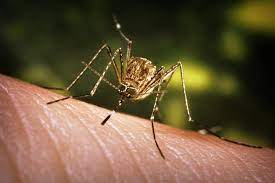Japanese Encephalitis : Study

A study conducted in Gorakhpur district, India, involving 266 children vaccinated with the Chinese SA-14-14-2 vaccine (a live, attenuated vaccine) for Japanese encephalitis, found very low levels of neutralising antibodies IgG at different time points after vaccination.
- The study found that seroprotection against the virus decreased in the vaccinated children.
- Seroprotection is an antibody response capable of preventing infection, e.g., after a vaccination or a previous infection with a microorganism.
- Nearly 98% of the children who received the vaccine did not have any IgG antibodies against the virus.
- Similar results were seen in a study carried out in Bangladesh, where children were immunised with the Chinese vaccine.
Japanese Encephalitis:
- Japanese Encephalitis (JE) is a viral infection that can cause inflammation in the brain.
- It is caused by a flavivirus that belongs to the same genus as dengue, yellow fever and West Nile viruses.
- Japanese encephalitis virus (JEV) is also a major cause of Acute Encephalitis Syndrome (AES) in India.
- The disease is transmitted to humans through bites from infected mosquitoes of the Culex species.
- These mosquitoes breed mainly in rice fields and large water bodies rich in aquatic vegetation.
- There is no antiviral treatment for patients with JE.
- Treatment, available, is supportive to relieve symptoms and stabilise the patient.
- Safe and effective JE vaccines are available to prevent the disease.
- JE vaccination is also included under the Universal Immunisation Program of the Government of India.




